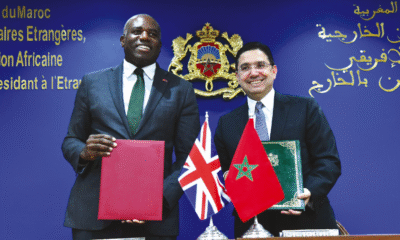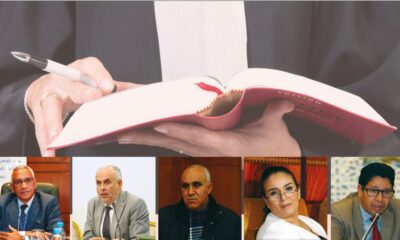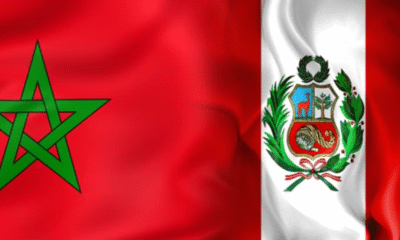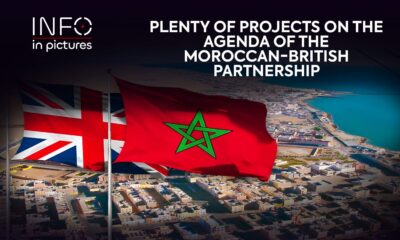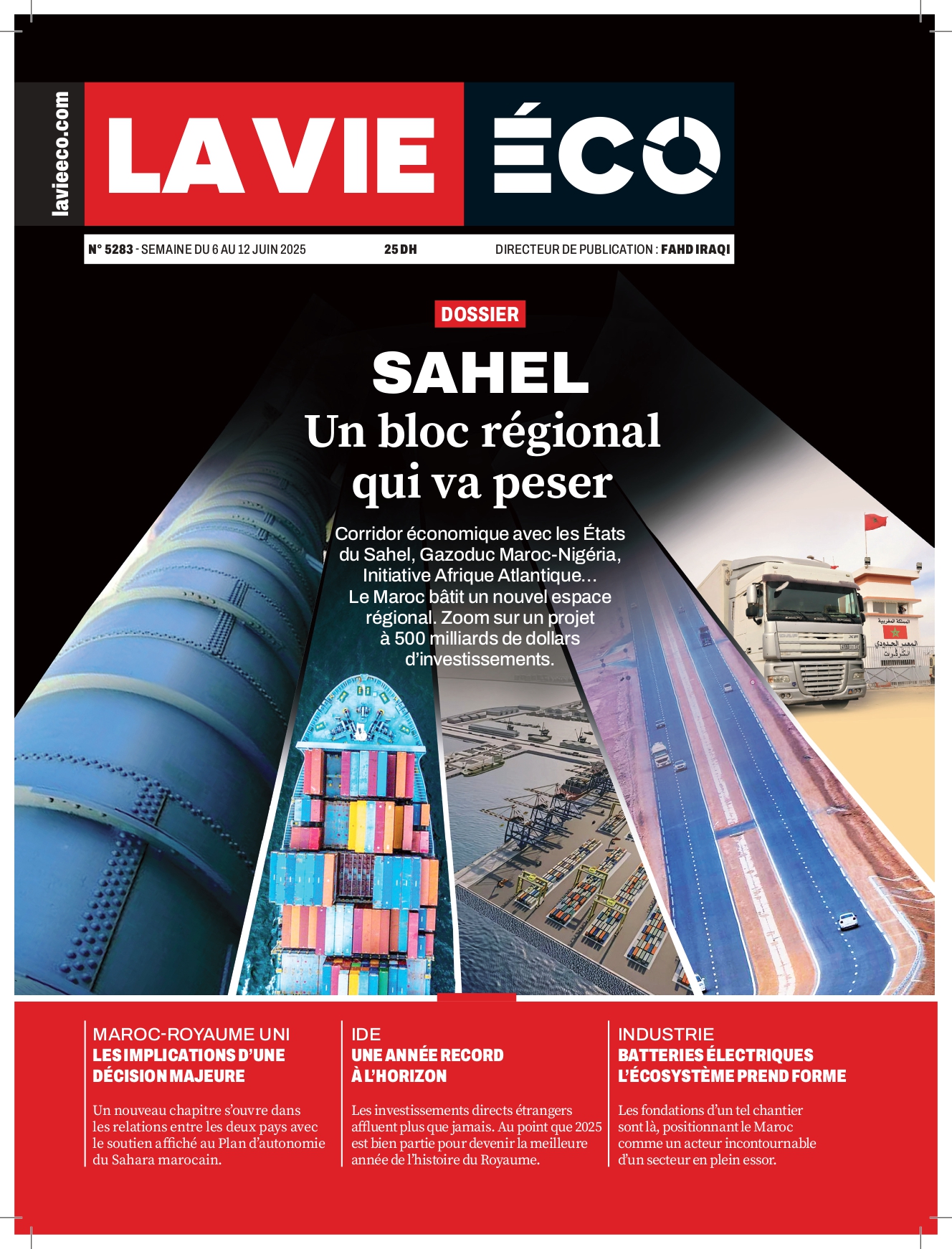Business
Mastercard Study: 74% of Moroccan Women Aspire to Start Their Own Business
A strong entrepreneurial appetite is noted among Moroccan women, who foresee promising business prospects. 82% of female business leaders expect their revenue to grow over the next five years.

A new Mastercard study, released ahead of International Women’s Day 2025, reveals that 74% of Moroccan women aspire to start their own business.
In addition to expressing interest in entrepreneurship, Moroccan women are driving a new wave of entrepreneurship and innovation in the country, according to Mastercard.
The study highlights a strong entrepreneurial appetite among Moroccan women and promising business prospects, with 82% of female business leaders expecting revenue growth over the next five years, demonstrating confidence in the future of female entrepreneurship in Morocco. On this occasion, Selin Bahadirli, Executive Vice President of Services for Eastern Europe, Middle East, and Africa at Mastercard, stated: « The entrepreneurial spirit among women is strong and growing, with younger generations leading the way.With access to the right financial tools, mentorship, and digital resources, women entrepreneurs can seize new business opportunities, drive innovation, and contribute significantly to economic development» .
For many women, the motivation to start a business goes beyond financial success. It involves achieving a better work-life balance (32%), pursuing lifelong dreams (27%), and gaining freedom and flexibility compared to traditional career structures (27%).
However, access to financing, mentorship, and digital tools remains essential for their ambitions to translate into thriving and scalable businesses.
The ambition of Moroccan women is evident, but only 27% currently identify as entrepreneurs.
While many are eager to take the leap, 64% have not yet realized their aspirations, a figure that rises to 74% among millennial women.
These data show that it is possible to increase women’s participation in Morocco’s entrepreneurial ecosystem, while highlighting the need for targeted support, financial access, and skill development to help them turn their ambitions into action.
Entrepreneurial Aspirations Across Generations
According to the study’s findings, women from Generation Z (36%) are the most likely to identify as entrepreneurs, followed by baby boomers (30% for both men and women) and millennials (28% for both men and women).
Additionally, half (50%) of Generation Z women already have a secondary activity, compared to 43% of all women.
The main motivations driving women to start independent activities include earning more money (52%), gaining financial independence (40%), and saving for a specific goal (30%).
Primary Sectors of Activity for Moroccan Women business leaders
Women in Morocco are more likely to create businesses in digital and service-oriented sectors, with the most popular sectors being online sales (23%), education, particularly tutoring (14%), cosmetics (14%), and food and beverages (14%).
Providing More Opportunities for Women Entrepreneurs
Moroccan women entrepreneurs are motivated, ambitious, and resilient, but access to financing, business skills, and professional networks remains crucial for their long-term success.
Women in Morocco are three times more likely than men to say they lack knowledge about how to start a business (14% vs. 4%). Lack of experience (32%), lack of financing (32%), and lack of financial resources (29%) are other major obstacles for women.
For his part, Mastercard’s North-West Africa Director, Mohamed Benomar, noted that this study highlights the ambition and resilience of Moroccan women entrepreneurs, who are integral to the country’s economy, shaping the future of business, bringing creativity and innovation.
« If their ambition is clear, more investment in financial inclusion, business skills, and digital tools can propel them even further, » added Mr. Benomar.
He also pointed out that Mastercard works closely with partners in Morocco to provide tailored financial solutions and digital infrastructure that help women-led businesses grow, expand, and thrive.
Confidence was highlighted as a major issue, with 15% of women—more than double the proportion of men (7%)—believing they lack the necessary confidence to start a business. Millennial women (21%) are the least confident in starting a business, compared to only 6% of millennial men.
This lack of confidence can be explained by various concerns of women entrepreneurs, including the lack of capital to launch a business (41%) and the risk of failure (27%).
Furthermore, four out of ten women entrepreneurs (41%) struggled to create a sustainable business due to a lack of knowledge, compared to only one in ten men (11%).
The greatest difficulty faced by both male and female entrepreneurs when starting their business was finding financing (50% for women vs. 61% for men). Women also cited access to digital infrastructure (23%) and lack of peer networks (23%) among the challenges encountered when starting their business.
Necessary Support
To overcome these obstacles, Moroccan women have identified key areas of support that would increase their confidence and ability to launch and develop thriving businesses. These include more available financing options (38%) to reduce financial barriers and better training in business skills (34%) to strengthen expertise.
It also involves providing more support for women’s ideas in the workplace (32%) to foster confidence and innovation and offering better technology training (25%) to improve digital business skills.
Women entrepreneurs also place greater importance on expert financial advice, with 41% of them considering payment management assistance crucial for business growth, compared to only 18% of men.
Leveraging Technology for Business Success
Moroccan women entrepreneurs are actively integrating AI into their activities, with 65% regularly using AI tools and 64% reporting significant time savings and cost reductions. Seven out of ten (70%) consult AI when they are unsure of the best course of action for their business.
However, cybersecurity concerns remain a worry, with 38% of business leaders (both men and women) having been targeted by fraudsters.
In parallel,Women (59%) are more frequently concerned about cyberattacks than men (50%), and 64% of women do not know how to protect their business from cyber threats, compared to 46% of men.
Mastercard has long been committed to supporting women entrepreneurs through financial inclusion, digital solutions, and knowledge-sharing initiatives. Since 2020, Mastercard has provided support and solutions to over fifty million small businesses, including thirty-seven million women entrepreneurs, to help them grow their businesses.
In Morocco, Mastercard’s partnerships, such as with the Digital Development Agency (ADD), support SMEs with tailored financial tools, improve digital payment infrastructure, and enhance cybersecurity so businesses can grow and thrive.
The study was commissioned by Mastercard, and fieldwork was conducted by the independent research agency Opinium. Between December 16, 2024, and January 3, 2025, a quantitative online survey was conducted in 41 countries across North America, Latin America, Asia-Pacific, Europe, the Middle East, and Africa. The survey involved 42,500 people from the general population, including 4,500 in the EMEA region and 500 in Morocco. It also involved 4,300 entrepreneurs and founders, with 800 in the EMEA region and 50 in Morocco.

